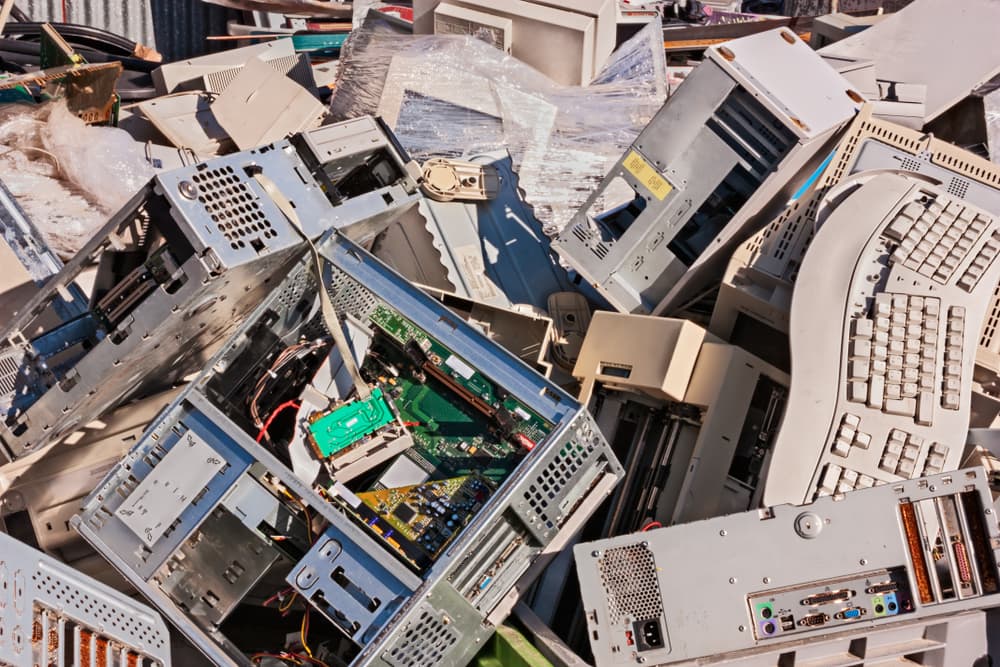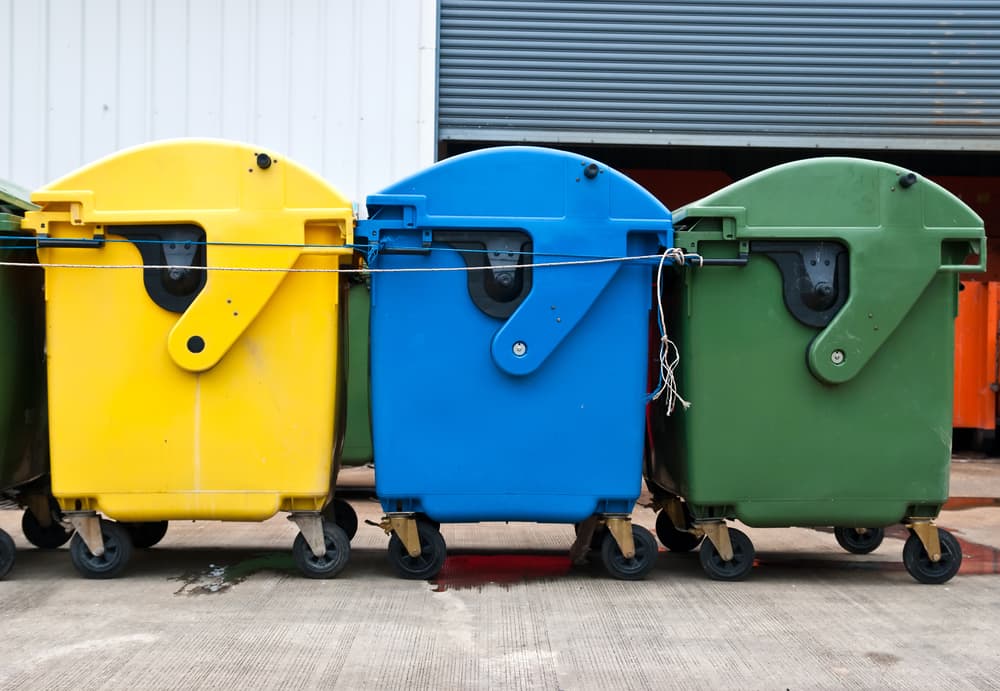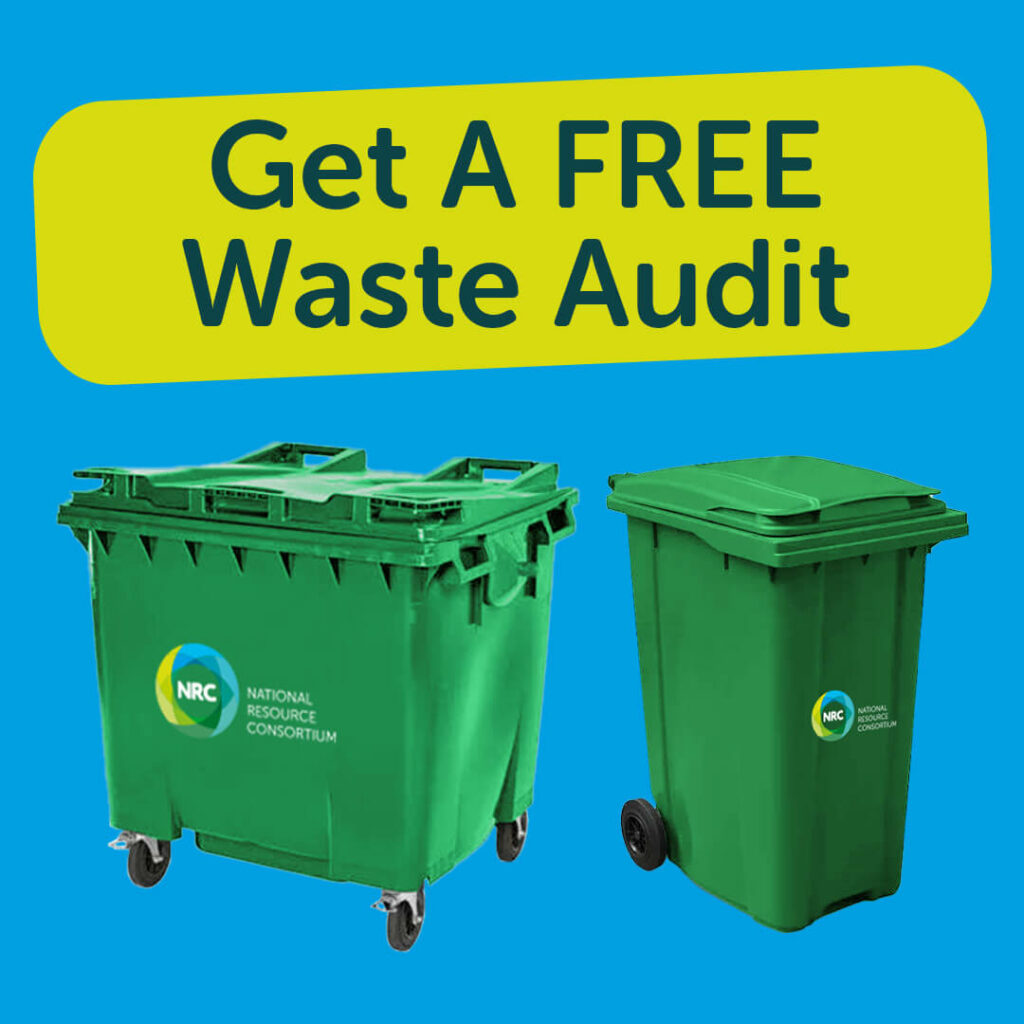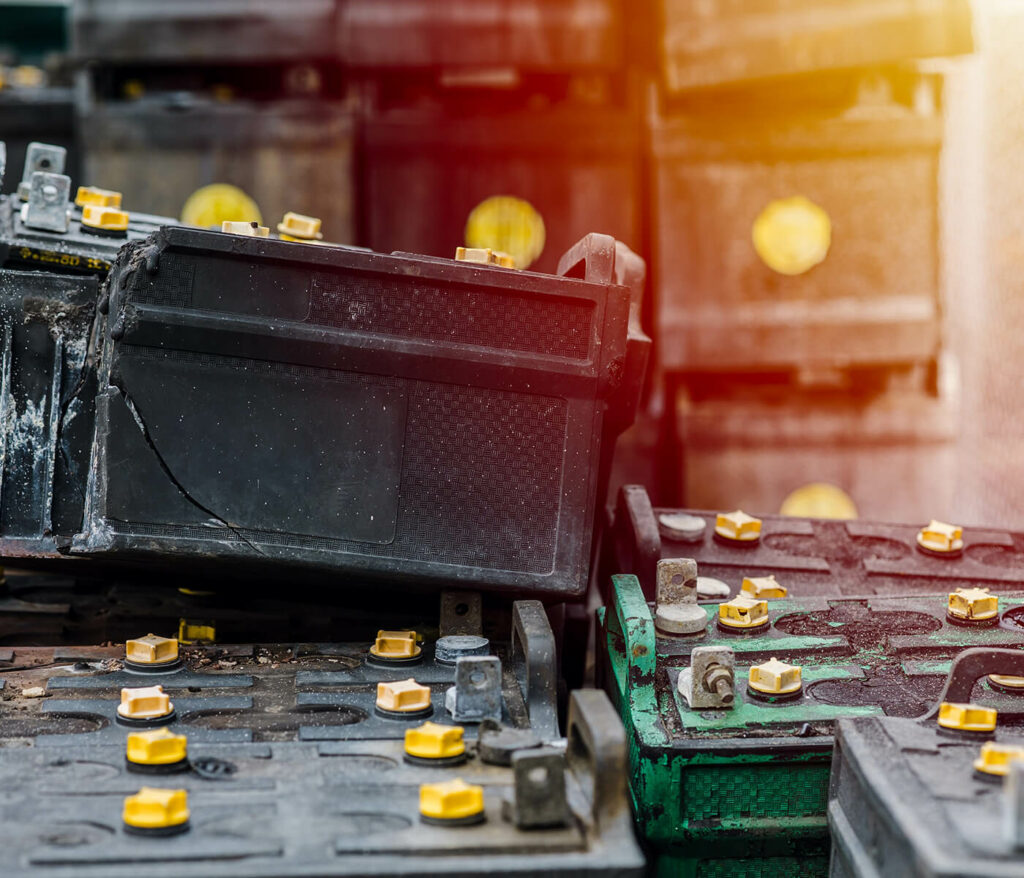May 9th, 2024

Whether your business is replacing an old set of computers, or you’re looking to upgrade your staff room with a new fridge freezer, you’ll need to dispose of this e-waste in a sustainable, responsible way.
But what happens when those once shiny new electrical tools no longer make the cut? Disposing of electrical equipment is not the same as tossing out yesterday’s lunch wrapper. There’s a method to the madness, and it’s called the WEEE directive.
In this blog, we’ll take a look at the ways you can make sure your business is properly disposing of its electric waste. Let’s get into it.
This guide covers:
- Environmental Impact of Electrical Equipment Disposal
- Recycling Options for Electrical Equipment
- Benefits of Electrical Equipment Recycling
Environmental Impact of Electrical Equipment Disposal
Properly getting rid of electrical equipment isn’t just good for your business image – it is an important part of minimizing the environmental impact caused by electronic waste.
When unwanted electronics are not removed correctly, they can release substances into the environment that are harmful to human health and the ecosystem (World Health Organization).
Heavy Metals and Hazardous Substances in Electronics
Heavy metals and hazardous substances are commonly found in electronics and can pose significant risks to the environment and human health if not properly disposed of.
Metals are frequently used in electronic devices and can be harmful when released into the environment, these include:
- Copper
- Gold
- Lithium
- Nickel
When disposed of improperly, copper can leach into soil and water, affecting the quality of ecosystems and potentially contaminating drinking water sources. Gold can also result in the release of harmful substances into the environment, while gold mining, often necessary to extract this metal, can have devastating effects on land and water resources, leading to deforestation, habitat destruction, and water pollution.
Lithium-ion batteries are commonly used in portable electronic devices. These batteries contain lithium, a highly reactive metal, which can react with water or air, causing fires or explosions. Additionally, lithium-ion batteries can release toxic substances such as cobalt and nickel, which contaminates soil and water sources.
Did you know, NRC regularly handle metal waste disposals for UK businesses?
Human Health Risks from Electronic Waste
These same hazardous substances and heavy metals can even pose significant risks to human health. When electronic devices are not disposed of correctly, these dangerous materials can leach into the environment, contaminating air, water, and soil.
Exposure to hazardous substances found in electronic waste, such as lead and mercury, can have severe health effects. Lead exposure can cause neurological damage, particularly impacting children, leading to developmental delays, learning disabilities, and behavioral issues. Similarly, mercury exposure can harm the nervous system, resulting in tremors, memory loss, and cognitive disorders.
Heavy metals like cadmium and chromium, commonly found in electronic waste, can also cause significant harm to human health. Cadmium exposure can lead to kidney and lung damage, as well as an increased risk of cancer, while chromium exposure has been associated with respiratory problems and allergic reactions.
Recycling Options for Electrical Equipment
When it comes to recycling electrical equipment, there are several options available to ensure that these items are disposed of properly. Whether you’re looking to recycle small appliances, large appliances, or electronics, here are some recycling options to consider:
1. Local Recycling Programs:
Many local councils have established recycling programs specifically designed for small appliances and electronics. These programs often include drop-off locations where you can safely dispose of your items.
2. Manufacturer Take-Back Programs:
Some manufacturers offer take-back programs to recycle their products. This is particularly common for electronics such as televisions, computers, and mobile phones. It’s worth checking with the manufacturer to see if they have a program in place.
3. Electronics Retailers:
Some electronics retailers offer recycling services for small appliances, large appliances, and electronics. They may have designated drop-off locations at their stores where you can bring your items for recycling.
4. Battery Recycling:
For batteries, including rechargeable batteries, it’s important to properly recycle them due to their potential environmental impacts. Many retailers and recycling centers have collection bins specifically for batteries.
5. Licensed Waste Carriers:
If you’re looking for a one-stop-shop, a Licensed Waste Carrier, like us at NRC, is the perfect choice. When you partner with us for your business e-waste disposal, you can rest assured it’s being disposed of in the most sustainable and environmentally friendly way possible.
Benefits of Electrical Equipment Recycling
Recycling electrical equipment offers many benefits, both for the environment and our communities.
First and foremost, recycling allows for the proper disposal of electronic waste, preventing it from ending up in landfills where it can leach harmful materials into the environment. By recycling electronic devices, we can also help conserve valuable materials that can be extracted and reused, reducing the need for new raw materials and minimizing the environmental impact of mining and extracting these resources.
Additionally, recycling electronics helps reduce the demand for energy used in the production of new devices (United States Environmental Protection Agency), further reducing the overall carbon footprint associated with their manufacturing.
Reuse and Redistribution of Precious Metals and Valuable Parts
Reusing and redistributing precious metals and valuable parts from electrical equipment not only helps to minimize waste but also conserves limited resources. This can be achieved through various methods and approaches.
One way to extract and repurpose these materials is through the dismantling process. The electronic devices are taken apart to recover valuable components such as gold, silver, platinum, and palladium. These precious metals can then be sold or used in the production of new electrical equipment.
Another approach is refurbishment, where the equipment is repaired and restored to its original working condition. This not only allows for reuse but also ensures that valuable parts are salvaged and put back into circulation.
Additionally, recycling companies often partner with manufacturers or scrap metal recyclers to establish efficient collection and sorting processes for electrical equipment. This enables the extraction of valuable materials from a range of devices such as computers, kitchen appliances, and medical equipment.
By reusing and redistributing precious metals and valuable parts from electrical equipment, we not only reduce the amount of electronic waste going to landfills but also contribute to the conservation of valuable resources. This sustainable approach aligns with environmental regulations and promotes responsible consumption and disposal habits.
Preservation of Natural Resources through Recycled Materials
Recycling electrical equipment plays a crucial role in preserving natural resources. By diverting these items from landfills, we can reduce the need for raw materials extraction, saving energy and protecting the environment.
Numerous materials can be recycled from electrical equipment, including metals, plastics, glass, and circuit boards. These materials are carefully separated through a sorting process at recycling facilities. Metals like copper, aluminium, and steel can be melted down and reused to create new products, decreasing the demand for mining and refining operations that harm ecosystems.
Trust NRC With Your E-Waste Removal
Disposing of electrical equipment with care isn’t just about ticking a box for compliance; it’s a statement of your commitment to protecting the environment. By understanding the risks and embracing the regulations, you lead by example, ensuring your business not only thrives but does so responsibly.
Need some support? That’s where we come in. With nationwide coverage and decades of experience backing us up, you can always trust NRC to handle your business’ electronic waste in the most responsible, sustainable and efficient way possible.





